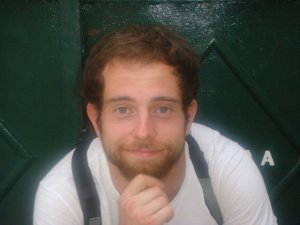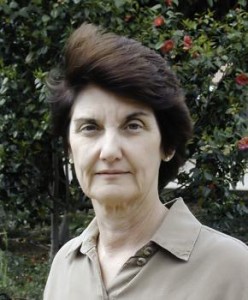
Professor Susan Stephens [susanas@]
My early formal training was as a papyrologist. For a number of years I published texts from the Oxyrhynchus and the Yale papyrus collections before turning to the two areas of research that continue to occupy me: the political and social dimensions of Hellenistic literature (and its later reception) and ancient Greek fiction writing. With Jack Winkler I edited Ancient Greek Novels: The Fragments (Princeton) in 1995, and I continue to write on the social contexts of the novels and on Hellenistic Egypt more generally. In 1998 I began to write on the Hellenistic poets suggesting that their poems could be best be understood as contextualized responses to a new time and place—the recently founded city of Alexandria. Seeing Double: Intercultural Poetics in Ptolemaic Alexandria, which appeared in 2003, was a study of how the local Egyptian contours of Ptolemaic kingship informed the poetry of Callimachus, Theocritus, and Apollonius. Since then then I have turned to Callimachus’ reception of earlier writing (particularly Herodotus and Plato), his imagined geographies, and his appropriation of earlier Greek myths of North Africa. Callimachus in Context. From Plato to the Alexandrian Poets (with Benjamin Acosta-Hughes, Cambridge, 2011) and Brill’s Companion to Callimachus (co-edited with Acosta-Hughes and Luigi Lehnus) will both appear this summer.
At the moment I am writing a commentary on Callimachus’ Hymns and, in an effort to make Callimachus’ Aetia more accessible and user friendly, will be facilitating a website located on the Stanford server. More information about the site is available in the 2010 department newsletter.
Boris Shoshitaishvili [borissh@]
Boris is a 2nd year graduate student in the Comparative Literature PhD program. His literary interests begin with Homer and Archaic Greek poetry and end with contemporary fiction, and he is desperately looking for ways to fill in some of what comes in between. Right now he is
exploring different approaches to epic—as a literary genre, an effect, an aesthetic experience of
wholeness, an expression of everyday slang. His hobbies are not especially epic: hiking, running,
table tennis, and the occasional game of Risk.
Stephen Sansom, Section Leader [sasansom@]
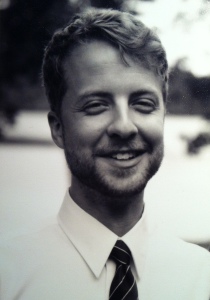 Stephen is a PhD student in Classical languages and literature. Stephen has lived most of his life in the South; as a result, he regards sports, especially college football, as something of a birthright. Sports related highlights include attending Hoover High (home to this show), Vandy (often the worst football team in the S.E.C.), and Stanford’s valiant effort at the 2014 Rose Bowl. For ancient athletics, his interests reflect his experience: fandom and emotions, music and sports (from ear buds to the L.S.J.U.M.B.), and the discourse of athletics (what we talk about when we talk about sports). Otherwise, he spends his time reading Greek and Latin poetry, hiking the peninsula’s numerous open spaces, and searching for the best BBQ in the Bay.
Stephen is a PhD student in Classical languages and literature. Stephen has lived most of his life in the South; as a result, he regards sports, especially college football, as something of a birthright. Sports related highlights include attending Hoover High (home to this show), Vandy (often the worst football team in the S.E.C.), and Stanford’s valiant effort at the 2014 Rose Bowl. For ancient athletics, his interests reflect his experience: fandom and emotions, music and sports (from ear buds to the L.S.J.U.M.B.), and the discourse of athletics (what we talk about when we talk about sports). Otherwise, he spends his time reading Greek and Latin poetry, hiking the peninsula’s numerous open spaces, and searching for the best BBQ in the Bay.
Scott Weiss [sweiss14@]
S cott is a PhD student in the Classics Department. Before coming to Stanford, he received his BA from Swarthmore College and his MA from the CUNY Graduate Center. His research interests primarily focus on Roman cultural history and Latin literature. Much of his work has concerned marginalized people in the Roman world, especially slaves and freedmen, and he looks forward to exploring these topics further in the context of athletics. Scott is also a sports enthusiast. He was the captain of his high school wrestling team and later coached the program’s youth team; he played club volleyball in college and enjoys pickup basketball. Being from New York, he is a Yankees fan.
cott is a PhD student in the Classics Department. Before coming to Stanford, he received his BA from Swarthmore College and his MA from the CUNY Graduate Center. His research interests primarily focus on Roman cultural history and Latin literature. Much of his work has concerned marginalized people in the Roman world, especially slaves and freedmen, and he looks forward to exploring these topics further in the context of athletics. Scott is also a sports enthusiast. He was the captain of his high school wrestling team and later coached the program’s youth team; he played club volleyball in college and enjoys pickup basketball. Being from New York, he is a Yankees fan.
Jon Weiland, Guest Lecturer [weiland4@]
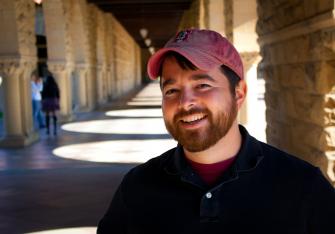 Jon’s research interests revolve around bioarchaeology, landscape archaeology, and Romans especially in the urban context. In his recent master’s thesis, he examined the impact of malaria on the Italian Peninsula, based on archaeological survey, paleopathological traits on human remains, classical medical texts and historical records of malaria in Italy. Jon has worked for the Midwest Archaeological Center of the National Park Service, the Archaeological Mapping Lab at the University of Pennsylvania’s Museum of Archaeology and Anthropology, and in Archaeological Collections at the Arizona State Museum. He has participated in archaeological investigation in Italy, Greece, Turkey, Mexico, and at several locations in the United States. In his free time Jon enjoys photography, the outdoors, travel and many varieties of food and dark beer.
Jon’s research interests revolve around bioarchaeology, landscape archaeology, and Romans especially in the urban context. In his recent master’s thesis, he examined the impact of malaria on the Italian Peninsula, based on archaeological survey, paleopathological traits on human remains, classical medical texts and historical records of malaria in Italy. Jon has worked for the Midwest Archaeological Center of the National Park Service, the Archaeological Mapping Lab at the University of Pennsylvania’s Museum of Archaeology and Anthropology, and in Archaeological Collections at the Arizona State Museum. He has participated in archaeological investigation in Italy, Greece, Turkey, Mexico, and at several locations in the United States. In his free time Jon enjoys photography, the outdoors, travel and many varieties of food and dark beer.
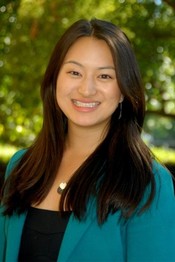 Glory Liu, Website Manager [gloryliu@]
Glory Liu, Website Manager [gloryliu@]
I’m a third year PhD student in Political Science who can’t seem to stay away from Classics. Before coming to Stanford, I spent two years at the University of Cambridge completing MPhils in Political Thought and Classics–the latter devoted entirely to the study of ancient athletics and displaying ancient athletics in museums. I’ve been a serious ballet dancer my whole life, but have been known to dabble in hockey (to try and be like my brothers). If you have problems or suggestions for this website, please send them my way!

